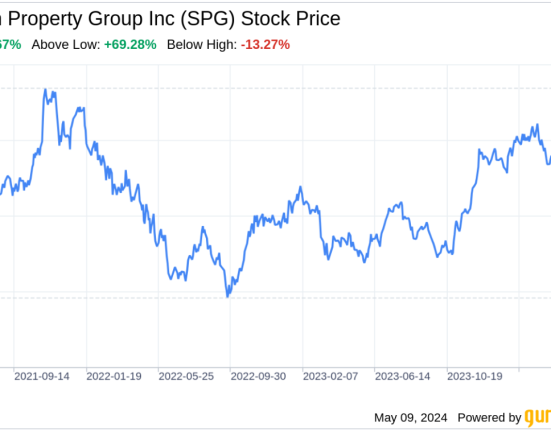Affiliate links for the products on this page are from partners that compensate us (see our advertiser disclosure with our list of partners for more details). However, our opinions are our own. See how we rate mortgages to write unbiased product reviews.
New inflation data has some thinking the Federal Reserve might not cut rates at all this year, which would keep mortgage rates elevated for longer than expected.
On Friday, the US Bureau of Economic Analysis released personal consumption expenditures data for March, which showed that prices rose slightly faster than forecasted last month. The PCE price index is the Fed’s preferred measure of inflation.
In response, 30-year mortgage rates jumped up further above 7%, according to Zillow data. Until inflation slows and the Fed is able to start lowering the federal funds rate, mortgage rates are expected to remain elevated.
Most major forecasts believe that mortgage rates will ultimately trend down this year. Fannie Mae researchers recently predicted that rates would reach 6.4% by the end of 2024. But should we still expect rates to go down in light of recent inflation data?
It’s still early in the year, and there will be many inflation reports released between now and September, when investors believe the Fed might finally start cutting rates. If inflation slows, rates should fall later this year. If it remains sticky, rates might not drop until 2025. But inflation is currently expected to decelerate this year, so we could still see mortgage rates fall this year.
Mortgage Rates Today
| Mortgage type | Average rate today |
|
|
|
|
|
|
|
|
|
|
|
|
|
|
|
|
|
|
|
|
|
Mortgage Refinance Rates Today
| Mortgage type | Average rate today |
|
|
|
|
|
|
|
|
|
|
|
|
|
|
|
|
|
|
|
|
|
Mortgage Calculator
Use our free mortgage calculator to see how today’s interest rates will affect your monthly payments.
Mortgage Calculator
$1,161
Your estimated monthly payment
- Paying a 25% higher down payment would save you $8,916.08 on interest charges
- Lowering the interest rate by 1% would save you $51,562.03
- Paying an additional $500 each month would reduce the loan length by 146 months
By clicking on “More details,” you’ll also see how much you’ll pay over the entire length of your mortgage, including how much goes toward the principal vs. interest.
30-Year Fixed Mortgage Rates
This week’s average 30-year fixed mortgage rate was 7.17%, according to Freddie Mac. This is a seven-basis-point increase from the previous week.
The 30-year fixed-rate mortgage is the most common type of home loan. With this type of mortgage, you’ll pay back what you borrowed over 30 years, and your interest rate won’t change for the life of the loan.
The lengthy 30-year term allows you to spread out your payments over a long period of time, meaning you can keep your monthly payments lower and more manageable. The trade-off is that you’ll have a higher rate than you would with shorter terms or adjustable rates.
15-Year Fixed Mortgage Rates
Average 15-year mortgage rates inched up to 6.44% this week, according to Freddie Mac data. This is a five-point increase since the week before.
If you want the predictability that comes with a fixed rate but are looking to spend less on interest over the life of your loan, a 15-year fixed-rate mortgage might be a good fit for you. Because these terms are shorter and have lower rates than 30-year fixed-rate mortgages, you could potentially save tens of thousands of dollars in interest. However, you’ll have a higher monthly payment than you would with a longer term.
How Do Fed Rate Hikes Affect Mortgages?
The Federal Reserve has increased the federal funds rate dramatically to try to slow economic growth and get inflation under control. So far, inflation has slowed significantly, but it’s still a bit above the Fed’s 2% target rate.
Mortgage rates aren’t directly impacted by changes to the federal funds rate, but they often trend up or down ahead of Fed policy moves. This is because mortgage rates change based on investor demand for mortgage-backed securities, and this demand is often impacted by how investors expect Fed hikes to affect the broader economy.
The Fed has indicated that it’s likely done hiking rates and that it could start cutting soon. This would allow mortgage rates to trend down later this year.
When Will Mortgage Rates Go Down?
Mortgage rates increased dramatically over the last two years, but they’re expected to go down at some point this year.
In March 2024, the Consumer Price Index rose 3.5% year-over-year. Inflation has slowed significantly since it peaked last year, but it has to slow further before rates will begin to fall.
For homeowners looking to leverage their home’s value to cover a big purchase — such as a home renovation — a home equity line of credit (HELOC) may be a good option while we wait for mortgage rates to ease. Check out some of our best HELOC lenders to start your search for the right loan for you.
A HELOC is a line of credit that lets you borrow against the equity in your home. It works similarly to a credit card in that you borrow what you need rather than getting the full amount you’re borrowing in a lump sum. It also lets you tap into the money you have in your home without replacing your entire mortgage, like you’d do with a cash-out refinance.
Current HELOC rates are relatively low compared to other loan options, including credit cards and personal loans.







